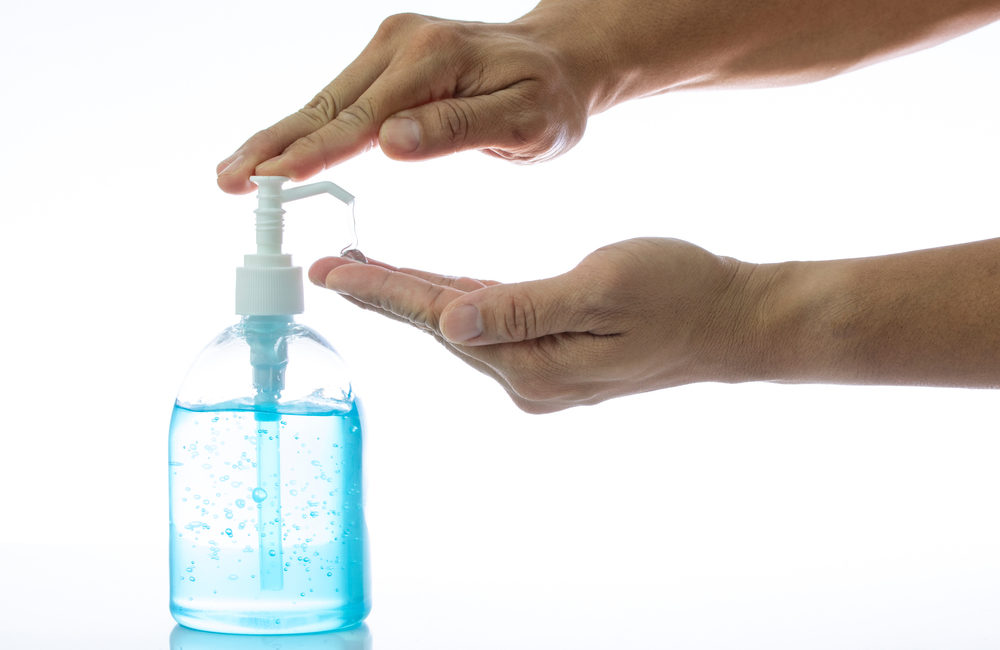We are still in the midst of the COVID-19 pandemic. With schools across the country reopening, families are more concerned than ever with hand hygiene. Hand sanitizers are one of the top selling items during back to school season. This year, however, parents may have to stay away from the easy-to-use alternative to hand-washing.
At Drug and Device watch, we want families to have as much information as possible about dangerous or defective drugs or medical devices. Here is what we know about the new FDA warning.
New Warning about Hand Sanitizers
In July, we told you about the U.S. Food and Drug Administration (FDA) warning consumers about toxic hand sanitizers. At the time, the FDA was aware of at least 75 hand sanitizers that were contaminated with methanol. Now, the FDA is warning consumers about another contaminant in hand sanitizers that could be a health risk.
The newest warning relates to around 150 products that may be contaminated with 1-propanol. 1-propanol is a type of alcohol commonly added to disinfectants. It is also suitable for engine fuel. This substance is not safe for human consumption. If someone consumes it, it can cause alcoholic intoxication, skin or eye irritation and allergic reactions.
It can be life-threatening if ingested by children, or in large amounts by adults.
According to the FDA,
“FDA is warning consumers and health care professionals about certain hand sanitizer products, including those manufactured by Harmonic Nature S de RL de MI in Mexico, that are labeled to contain ethanol or isopropyl alcohol but have tested positive for 1-propanol contamination.”
Most of the toxic hand sanitizers are made in Mexico, but some brands are made in China and the U.S. The FDA has created a search page on their website that allows you to check and see if your hand sanitizer is on their “do not use” list. Consumers can search the list before they buy to make sure they are not bringing a dangerous product into their home.
How to Dispose of Toxic Hand Sanitizer
If you do have toxic hand sanitizer in your home, the FDA says you should dispose of it immediately. More specifically, the FDA recommends the products be disposed of in hazardous waste containers. Talk to your trash or recycling provider and see if they offer hazardous waste disposal. If not, they may be able to direct you to where you can dispose of toxic waste.
The FDA says you should not flush hand sanitizers or pour them down the drain. The toxic ingredient, 1-propanol, is flammable and combustible. It is not safe for the local water or sewer systems as it can be dangerous for humans and animals if it enters the water supply or watershed.
Symptoms of 1-Propanol Exposure or Poisoning
According to the FDA, consumers who are most at risk for ingesting 1-propanol are young children. Children may not understand the risk. The packaging and scents may be enticing (more below). Also, adults who ingest hand sanitizer as a substitute for alcoholic beverages are also at risk. Exposure to 1-propanol can depress the central nervous system (CNS). Symptoms of 1-propanol exposure or poisoning include:
- Confusion
- Slow pulse
- Decrease in breathing
- Decrease in consciousness
Without timely intervention, the CNS depression can result in death. Anyone who consumes 1-propanol – accidentally or intentionally – should get medical attention immediately if they develop any of these symptoms.
FDA Warns Consumers about Hand Sanitizer Packaging
As if the contamination risk is not enough, the FDA is also warning consumers about hand sanitizer packaging. According to the FDA, certain hand sanitizer packages look like containers of food or drinks. The FDA News Release says that the products are packaged in what looks like:
- Beer cans
- Food pouches
- Water bottles
- Vodka bottles
- Juice bottles
The FDA also notes that some of these hand sanitizers contain flavoring. So far, they have identified chocolate and raspberry flavoring. These products are incredibly dangerous, especially to children. Methanol and 1-propanol are both dangerous chemicals that should not be ingested.
Parents should inspect their hand sanitizers to make sure they are not using a recalled product. They should also choose products with packaging that is easily identifiable as hand sanitizer rather than food or drink.
Get More Information about Toxic Hand Sanitizers
Consumers who want more information about the toxic hand sanitizers can follow the FDA News Release. The FDA is regularly updating this page with information about recalls and safety alerts.
If someone consumes a toxic hand sanitizer, the patient should go to the hospital immediately. The FDA urges consumers to connect with the poison control helpline by calling 1-800-222-1222. Adverse events should be reported to the local health department and the FDA, who monitor such events.
As always, you can stay up-to-date on the current status of recalls and safety alerts by following Drug and Device Watch on Facebook, or by keeping up with our weekly blog posts. Also, if you have questions about a defective or dangerous medical device or drug, give us a call at 1-888-458-6825.
Sources:
- https://www.fda.gov/news-events/press-announcements/covid-19-update-fda-warns-consumers-about-hand-sanitizer-packaged-food-and-drink-containers
- https://www.fda.gov/consumers/consumer-updates/your-hand-sanitizer-fdas-list-products-you-should-not-use
- https://nypost.com/article/hand-sanitizer-recall-list-fda/
